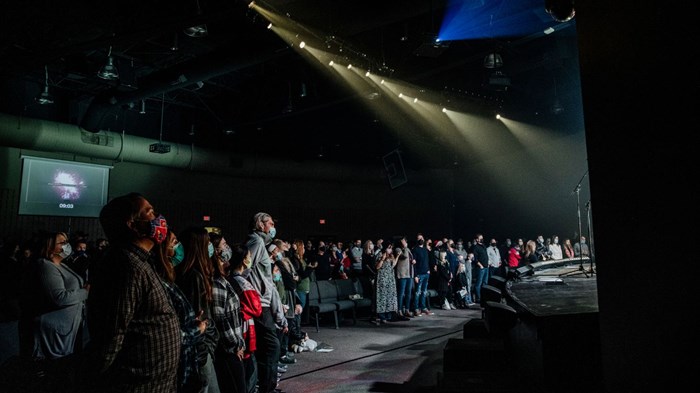
Before the January 6 uprising at the US Capitol put the country’s unrest on display, many evangelical leaders in the US saw signs of the escalating tensions from their own pulpits, deepening their call to preach and teach a gospel that puts God over country.
Nine months ago, Texas pastor Brian Haynes got a text message from a member of his congregation who noticed fellow believers sharing conspiracy theories online and felt “overwhelmed by the amount of fear and disunity.”
Haynes, lead pastor of Bay Area Church outside Houston, wrote a 500-word response and posted it on his blog. When the post got 200,000 views in a matter of days, he realized just how big the issue had become.
“I’ve really had to seek wisdom for it. As a shepherd, how do I love these people who I think are believing something that is a lie?” said Haynes. “It’s been very exhausting for pastors. You either just said, ‘I’m not dealing with it,’ or you leaned into it. I’m leaning into it.”
He has had conversations with members of his 1,500-person congregation about COVID-19, masks, and Dr. Anthony Fauci; Southern Baptist leadership and Russell Moore; and QAnon and the presidency. He’s also addressed misconceptions in his preaching and teaching.
And over the past year, Haynes’s approach to pastoring has been transformed. Basic convictions that he believed all along—about leading people who agree on the essentials even if they differ on other issues and prioritizing an eternal perspective—became paramount.
“Kingdom has become forefront for me. I would’ve always winked at kingdom thinking, but now I realize we really have to have our eyes set on King Jesus,” he said. “If we’re kingdom-focused, and we have a King that lasts forever and a throne that lasts forever, then transitions of power and politics, and masks or no masks, all that stuff shouldn’t throw us. It might bother us or frustrate us, but we should be the calm in the room.”
Pastors will tell you that ministering across political divisions—something the church has been charged with since the days of Paul—is practically part of their job description. But that responsibility took on new weight and urgency as America’s political landscape shifted over the past year.
At the Washington, DC, Christian Reformed Church, the shift in the political tenor hits close to home in a congregation filled with Christians who work with and for the government.
Pastor Meg Jenista Kuykendall spent the afternoon of January 6 getting in touch with church members who live and work on Capitol Hill to ensure they were safe. She’s spent many mornings calling and praying with congregants whose jobs or agencies were threatened by changes under the previous administration.
While Jenista Kuykendall has not had to address conspiracy theories within her church, their hold among the larger body of Christ still hurts. It’s hard to hear people malign or twist the work of the government when she can see firsthand the faithful public servants who feel called to Washington to serve the common good.
“We are not immune from the fractured relationships across ideological divide, and I am defensive when I see those snide, dismissive comments directed by Christians in other parts of the country at Christians in my congregation,” she said.
The recent concerns over Christian nationalism and its role in the Capitol attack focus on the political rancor at a national level, calling on the church and country at large to work toward the buzzword of “unity.” But the divides do not show up uniformly across congregations, putting individual pastors in the position of assessing how to respond.
Click here to read more.
Source: Christianity Today